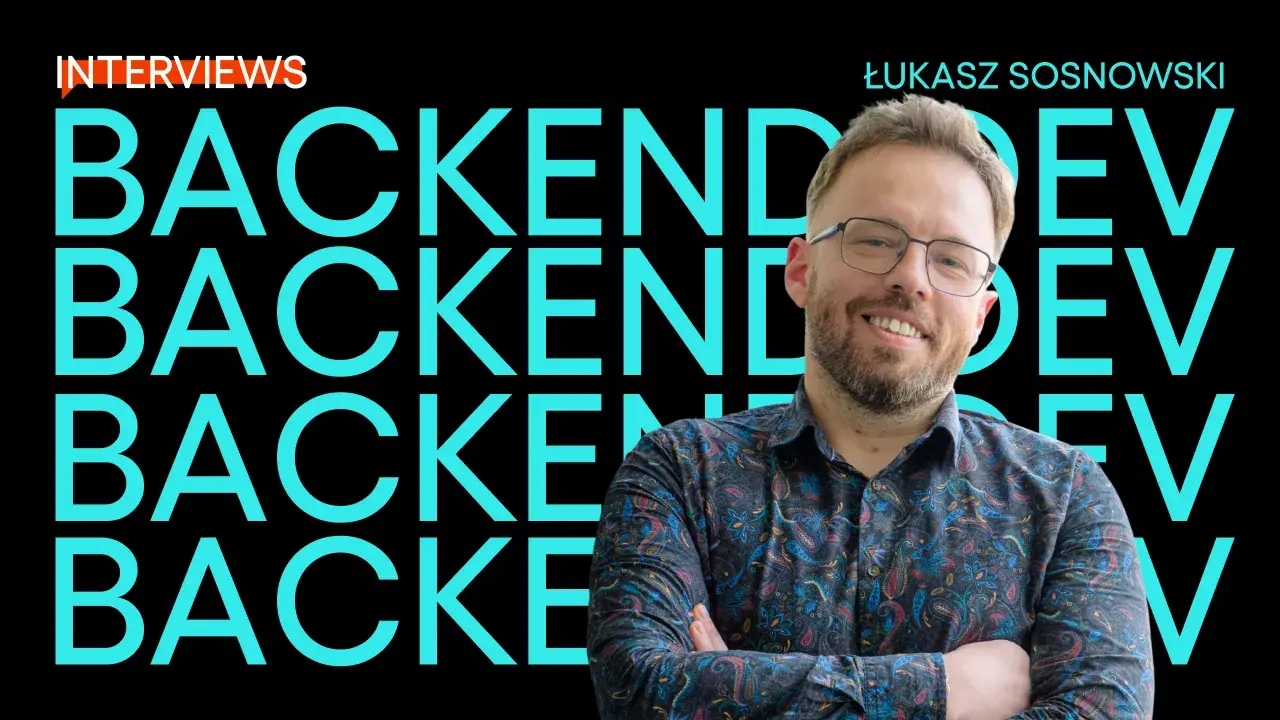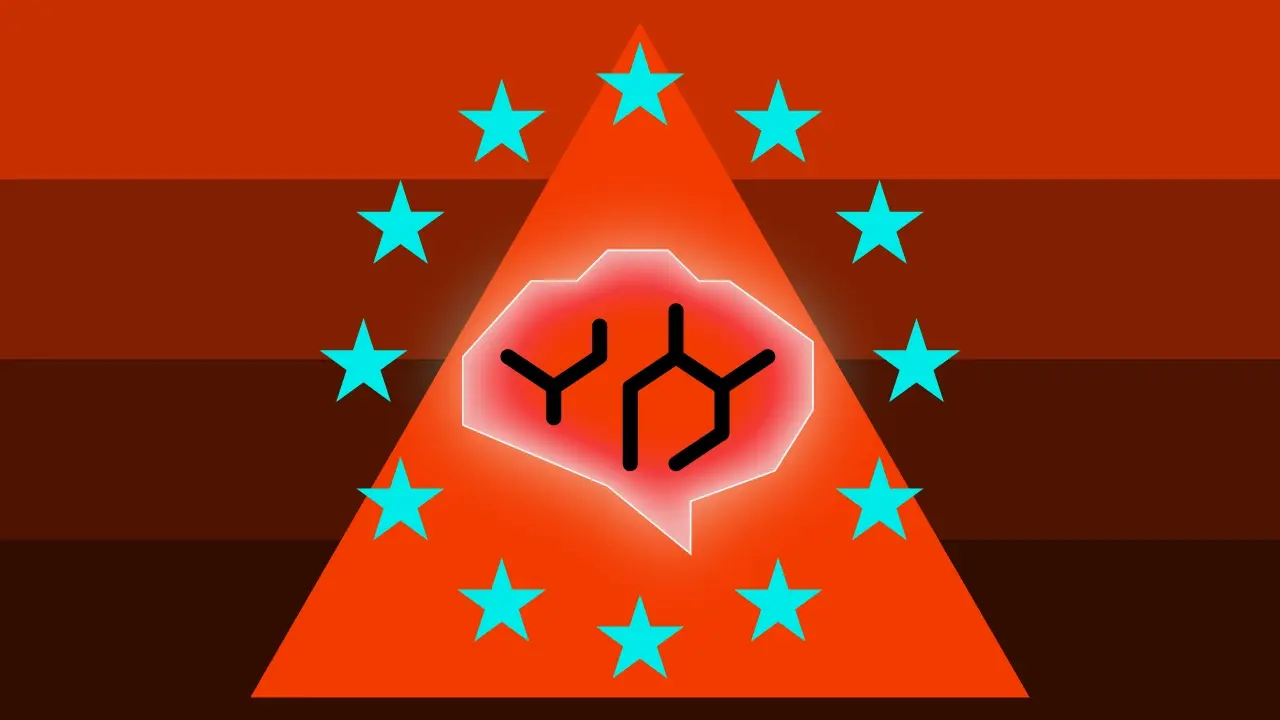#TeamSpeednet: Łukasz, Backend Developer


Meet Łukasz Sosnowski – a backend developer at Speednet. Please find out how his journey in the IT industry began, which projects posed the biggest challenges for him, and what connects programming with board games.
How long have you been working at Speednet, and what do you do?
Łukasz: I think I started working here in March 2019. I have to admit, the time has flown by incredibly fast – this year marks six years already.
What do I do? I’m a programmer, a backend developer. As far back as I can remember, I’ve been coding, and I started with the BASIC language.
What were your first steps in programming?
Łukasz: My first encounter with computers was with a Commodore 64, then an Atari, but those belonged to my friends. Eventually, my dad decided to buy us a computer – it was a PC XT with a Hercules graphics card. Compared to other computers of that time, it wasn’t really suited for the games that interested young people. Naturally, I started exploring other possibilities, experimenting with the operating system, learning programming, and gradually immersing myself in this world.
Of course, I had different experiences along the way. For a long time, I wasn’t sure if programming was something I wanted to pursue seriously. My path to this profession was quite bumpy. It wasn’t until I was studying library science and discovered a computer lab with unlimited internet access that I realized this was what I wanted to do. That was a turning point – I started looking for programming materials, exploring languages, examples, and tutorials. I was so fascinated that I spent entire days there. Eventually, after my first semester, I was expelled from university, but by then, I already knew what I wanted to do.
How did you end up at Speednet?
Łukasz: Before joining Speednet, I had never worked at a software company – I was kind of operating on the sidelines. Of course, I was still programming, as I was building e-commerce stores from scratch for a trading company. But at some point, I started missing conversations about topics that truly interested me. I wanted to discuss how to solve specific problems, whether the class name I chose was appropriate, or what methods certain objects should have… I tried bringing up these topics with salespeople, but they just looked at me like I was crazy. That’s when I realized I was missing something. I have to admit, for a long time, I was kind of living “under a rock.” [laughs]
At 39, I felt that if I didn’t make a change, I’d be stuck in that company forever. So, I sent out a single CV and got invited to a technical interview at Speednet with Mateusz. After that conversation, I left feeling a bit worried because Mateusz made me realise that I had been living in a completely different world. He introduced me to a new reality – conferences, meetups, different frameworks, technologies I had never even heard of. I felt like I had completely bombed the interview, but at the same time, I gained clarity on the direction I needed to take. So, I decided that in six months, I would come back and try again.
I returned to my job and started implementing new things, but just a few days later, I got a call from Gosia from HR, inviting me for a second interview. That was exactly what I had been dreaming of – I wanted to join a company where I could grow, work on different projects, and have conversations with people who understood what I was talking about, people I could bounce ideas off of. I’m really happy that everything turned out the way it did and that I’m here today.
What do you like most about your job, and what motivates you daily?
Łukasz: I love solving problems the most. I always try to approach them in a non-standard way. When I come across a challenge similar to the one I solved before, I set new goals and try to find another, perhaps better solution. If I succeed, that’s great because it gives me a huge sense of satisfaction. If I don’t, I see it as an opportunity to learn and gain new knowledge. That’s what makes my daily work enjoyable.
What motivates me? I think it’s quite simple. I’m part of a project team where we create something valuable together. We work for a client who counts on us to develop their product. Knowing that I’m part of something bigger and that my work has a real impact on the functioning of the entire system gives me a great sense of fulfillment.
What tools and technologies do you use most often?
Łukasz: As I mentioned, I’m a backend developer, and I work with PHP. Currently, we’re using version 8.3, but we’ll be transitioning to 8.4 soon. We also work with the Symfony framework – right now, we’re on version 6.2, but we’re planning to migrate to 6.4 and later to version 7.
These are the main technologies I deal with daily. In addition, we have a fantastic environment based on Docker. I’d like to give special recognition to my colleagues, Błażej and Tomek, who do an amazing job maintaining and improving our development environment. It’s truly outstanding! Our entire ecosystem consists of multiple interconnected applications. Thanks to their work, we can run everything locally on our computers, which significantly simplifies and speeds up our work. Honestly, I just get to benefit from the results of their efforts.
Which of the projects you’ve worked on has been the most challenging for you, and why?
Łukasz: Each project was a challenge, but for different reasons. I remember that when I started working at Speednet, I joined a project led by Rafał. It was a huge challenge for me because I had never worked with the Scrum methodology before. It was also my first experience with the Symfony framework. Previously, I had used different technologies. I had to get up to speed quickly, but in the end, I managed to catch up and adapt to the new work environment.
Later, I joined the Opinahjo (now Eduhouse) team, where I spent quite some time. Unlike my previous project, where I worked independently, here I had to learn how to collaborate within a team. Additionally, it was a project for an international client, which was a new experience for me and required better communication in English.
After that, I moved to a banking project, where the work environment was completely different – it felt more like a large corporation. It introduced a new way of working, with a greater focus on regular, well-structured meetings. Participating in these meetings required more involvement from me, and the frequent discussions and exchange of ideas pushed me to develop my soft skills. The codebase itself was massive. The process of creating requests and managing the environment was more complex than in my previous experiences. It was a large-scale project.
You run a very active board game group at the company. What inspired you to start it?
Łukasz: I had already been playing board games with my group of friends before. Then, at work, I met a few people who were also into board games, so the idea of playing together after hours naturally came up. It turned out that there was already a company channel dedicated to board games, but it wasn’t very active. So we started using it to organize game sessions.
At first, it grew slowly. For a long time, we had a core group of four people, and we would meet in our old office at PPNT. After we moved to Gdańsk, I decided to give the channel a boost, actively inviting new people and encouraging them to join our game nights. Thanks to this, more and more people became interested in board games, and the community started growing organically.
Now, the channel runs on its own – I’ve stepped back a little. My goal was to create a space where people could organize themselves, and it looks like it’s heading in that direction.
Do you see any similarities between the world of board games and your work? Are there any overlapping skills?
Łukasz: First and foremost, there’s a very similar feeling. When you play board games and make a good decision, you get immediate feedback – you gain resources, gain an advantage, and instantly feel satisfied because your move had an effect. Even if it wasn’t the perfect decision, it was still the best possible one at the time, so you feel good about it. It’s the same in programming. When you have a problem to solve, come up with an idea, and it works, you get that same rush of satisfaction. The immediate feedback and the sense of a job well done are key similarities between programming and board games.
On a deeper level, planning and anticipating future steps play a huge role. In programming, you often work on a small part of a larger process. Even during the implementation phase, you need to predict what variables or structures will be needed later to avoid issues down the road. Strategy in board games works the same way. If you know that in a few turns you’ll want to take a specific action, you need to gather the right resources beforehand and lay the groundwork for future moves.
Another interesting aspect is cooperative games and how they reflect teamwork. Some games have what’s called the “leader effect,” where one person takes control and tells everyone else what to do. This can take away some of the satisfaction for the other players since they’re just following instructions. But there are also games where each player has partial information that others don’t, so they must make their own decisions based on their knowledge. In these cases, collaboration and planning become crucial.
Teamwork in a Scrum team works in a very similar way. If we want to be effective, we need to share information, communicate, and collectively plan our strategy. Just like in board games, success depends on collaboration, good communication, and strategic thinking.
What are your favorite board games?
Łukasz: That’s a really tough question! When recommending a game to someone, I always try to first find out what they like and what their interests are. I firmly believe that everyone likes board games – they just haven’t found the right one yet. If I know whether someone prefers competitive or cooperative games, economic strategies, war games, or something light and quick, I can suggest something that suits them. I don’t think there’s a single perfect game for everyone, but if I had to pick my top three, they would be:
- Lewis & Clark – I absolutely love this game. It’s a competitive economic game where players take on the roles of explorers traveling through the Wild West. Each player leads their own expedition team and tries to reach the destination as quickly as possible. The mechanics are brilliantly designed, and the sense of exploration is really well captured.
- Puerto Rico – A classic among board games. It’s an excellent economic game with simple rules that are easy to explain, yet it offers a lot of depth and satisfaction. It’s a great choice for people just starting their journey with more complex board games.
- Mage Knight – This one is definitely on another level. It’s complex, long, and requires a lot of commitment. Every time I play, I make some kind of mistake, which just shows how many factors you need to consider. Reading the rulebook alone feels like an adventure in itself, but the game is incredibly rewarding.




